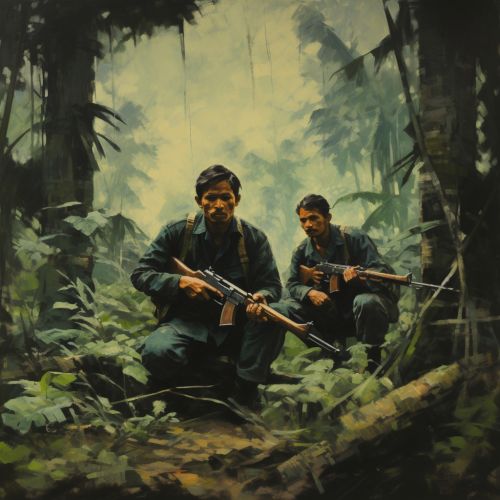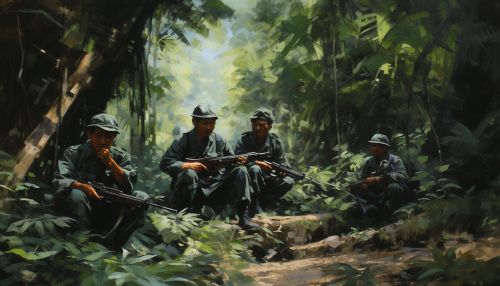Viet Cong
Origins and Formation
The Viet Cong, also known as the National Liberation Front (NLF), was a political and military organization that emerged in South Vietnam in the late 1950s. The Viet Cong was primarily composed of South Vietnamese communist sympathizers and was supported by the Democratic Republic of Vietnam (DRV or North Vietnam) and other communist allies. The organization was formed with the primary goal of overthrowing the South Vietnamese government and reunifying Vietnam under a single communist regime.
Ideology and Objectives
The Viet Cong was founded on the principles of Marxism-Leninism, advocating for the establishment of a socialist state in Vietnam. The organization aimed to achieve national liberation and social revolution by overthrowing the South Vietnamese government, which they viewed as a puppet regime controlled by foreign imperialists. The Viet Cong also sought to implement agrarian reforms and promote social equality.


Organizational Structure
The Viet Cong had a complex organizational structure, with both political and military components. The political wing, known as the National Liberation Front, was responsible for propagating the organization's ideology and mobilizing support among the South Vietnamese population. The military wing, known as the People's Liberation Armed Forces (PLAF), was tasked with conducting guerrilla warfare against the South Vietnamese and U.S. forces.
Tactics and Strategies
The Viet Cong employed a variety of tactics and strategies in their struggle against the South Vietnamese government and its American allies. These included guerrilla warfare, terrorism, and political propaganda. The Viet Cong's guerrilla tactics were characterized by hit-and-run attacks, ambushes, and the extensive use of tunnels and booby traps. The organization also carried out acts of terrorism, such as assassinations and bombings, to undermine the South Vietnamese government and intimidate its supporters.
Role in the Vietnam War
The Viet Cong played a crucial role in the Vietnam War, fighting against the South Vietnamese and U.S. forces. The organization's guerrilla tactics and political propaganda significantly contributed to the anti-war sentiment among the South Vietnamese population and the international community. Despite suffering heavy casualties, the Viet Cong continued to resist until the end of the war in 1975, when the South Vietnamese government was finally overthrown and Vietnam was reunified under a communist regime.
Legacy
The legacy of the Viet Cong is a subject of ongoing debate. While some view the organization as a symbol of national liberation and resistance against foreign imperialism, others criticize it for its violent tactics and disregard for human rights. The Viet Cong's role in the Vietnam War has also been a major factor in shaping Vietnam's post-war history and its relations with the United States.
